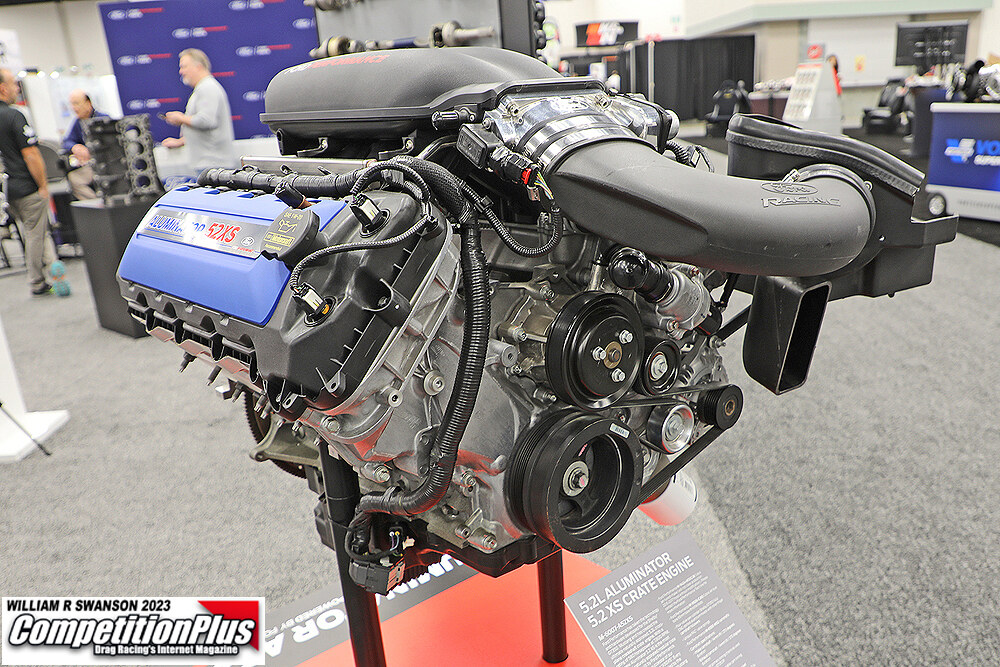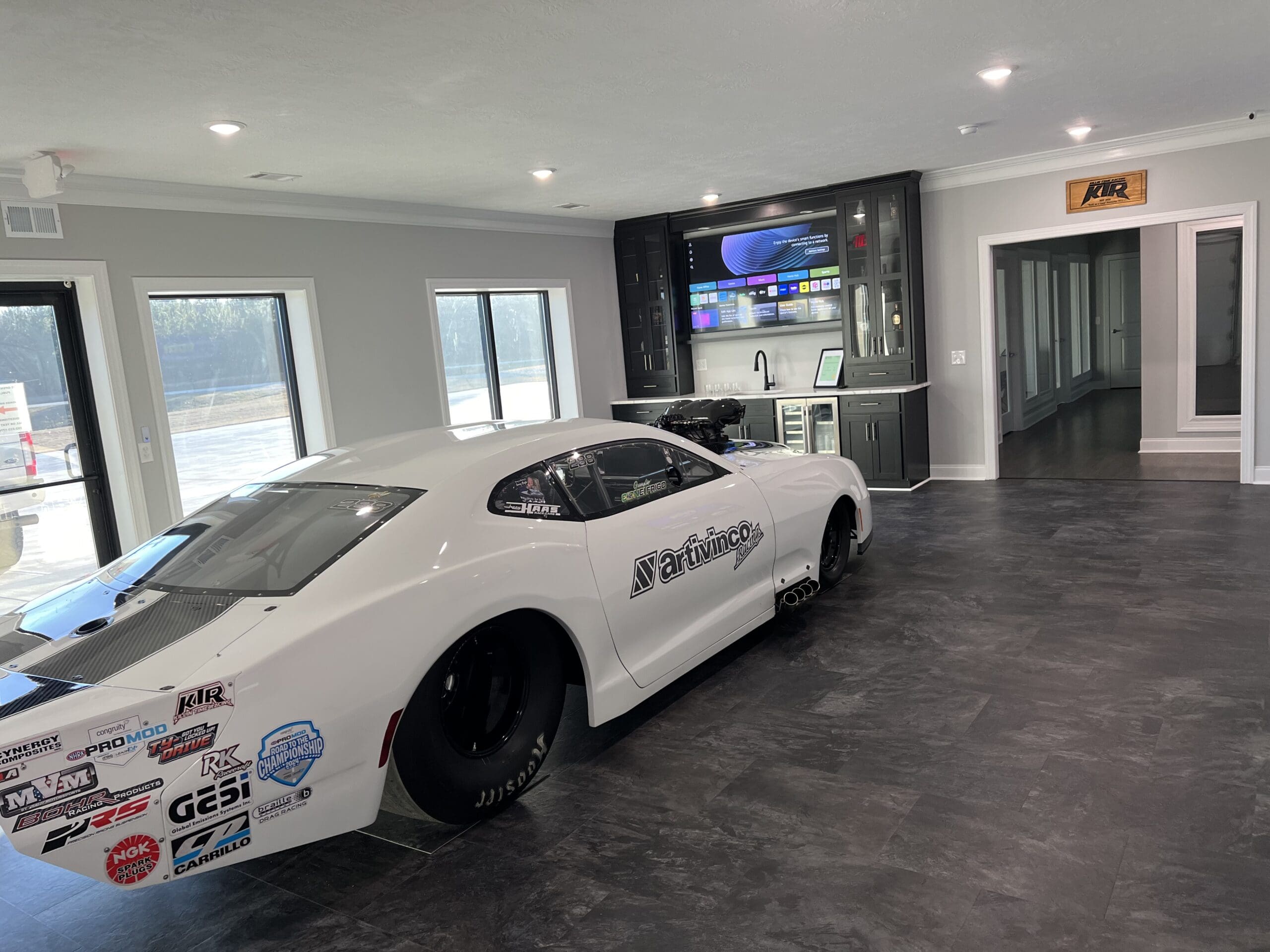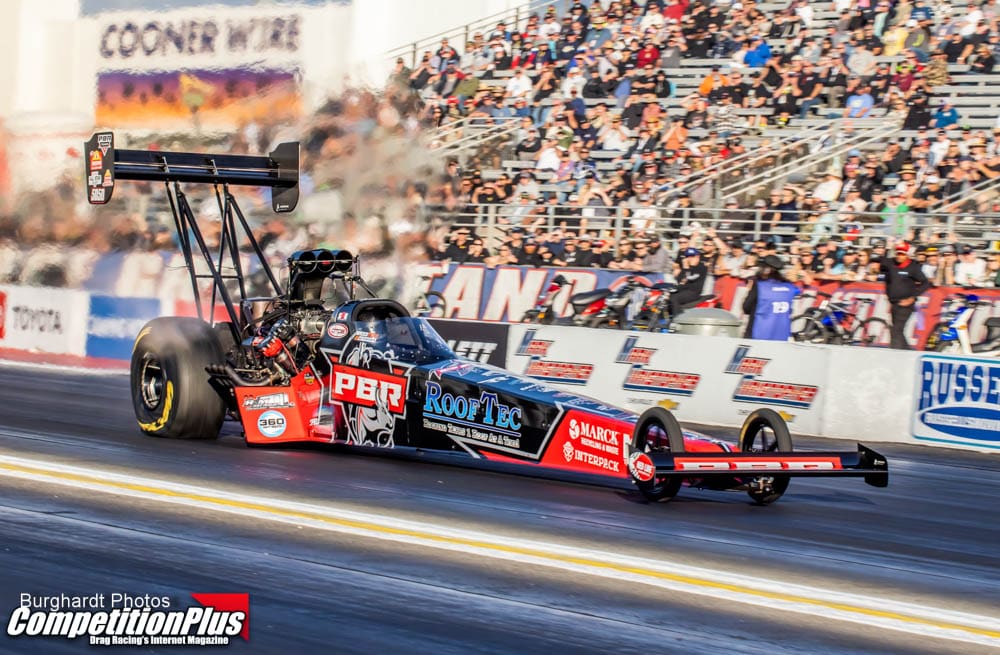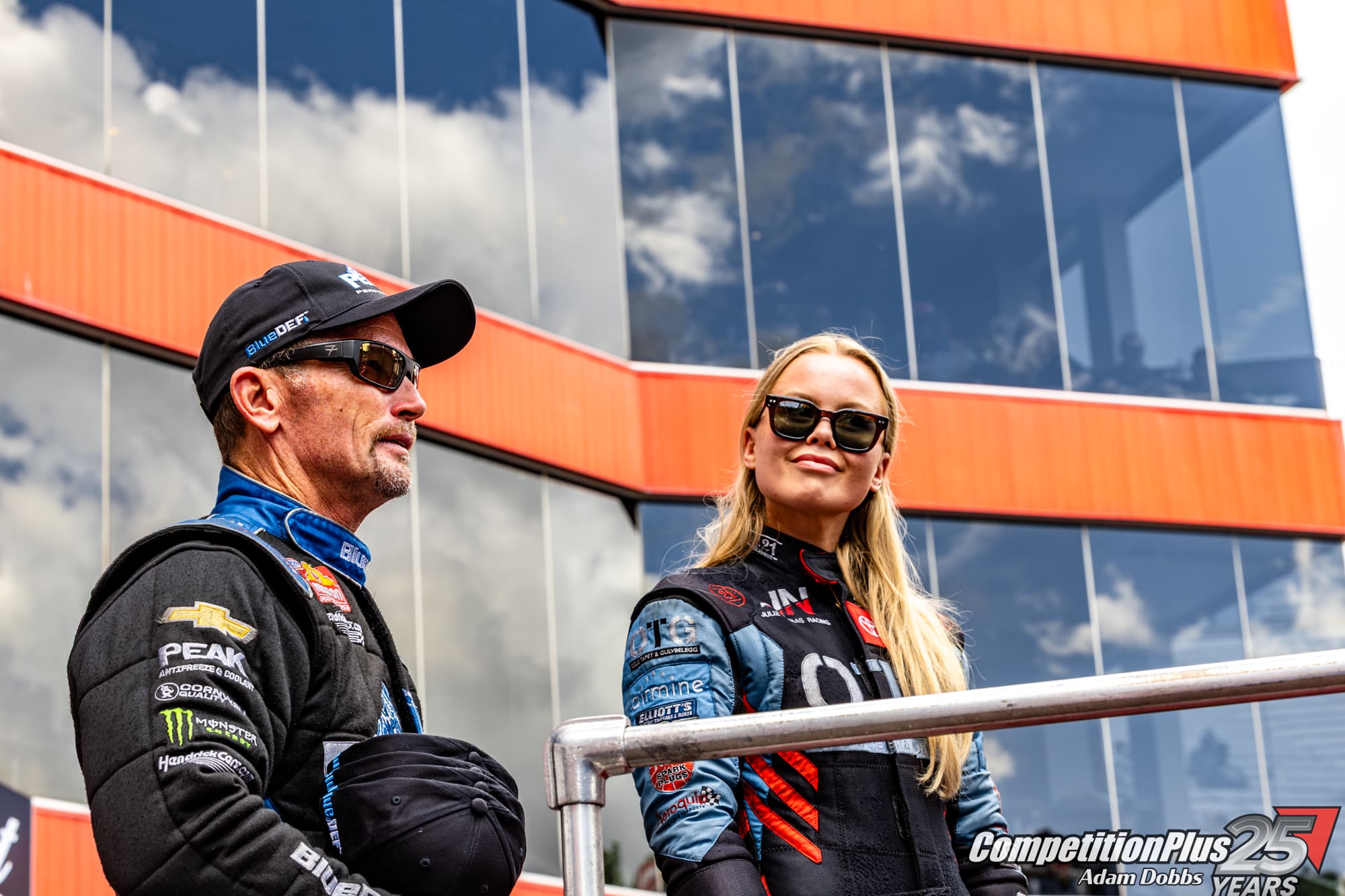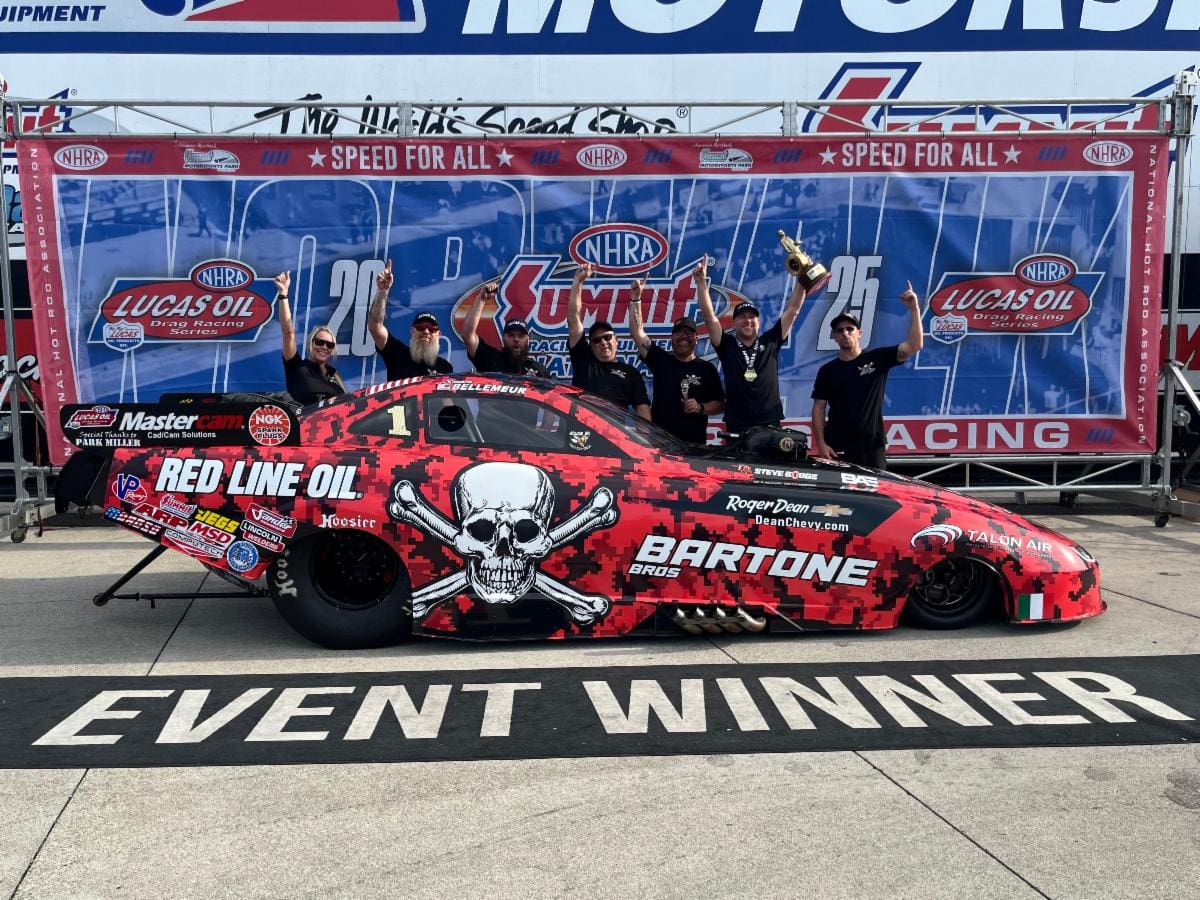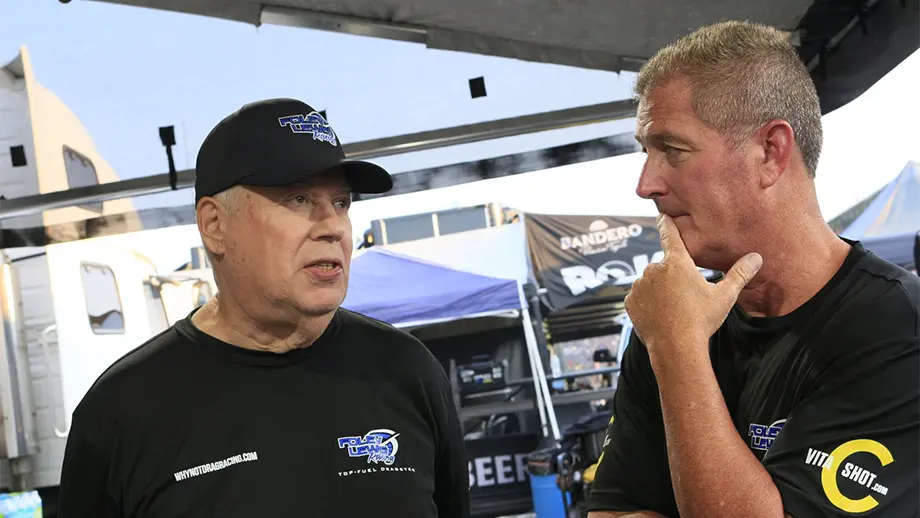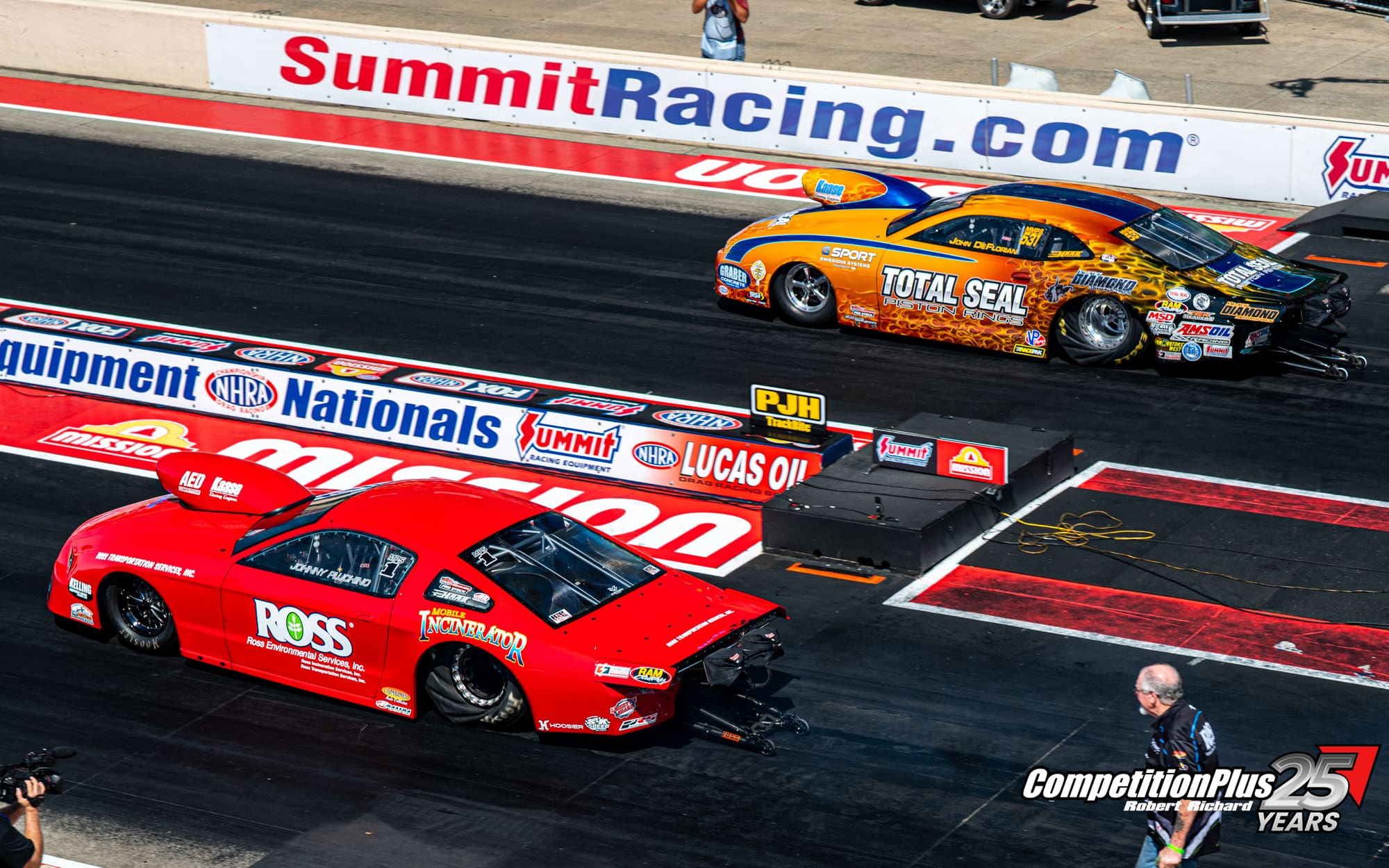
Ian Tocher understands the most impactful photos he’s ever shot in two decades of covering drag racing will never be published, and he’s fine with the process.
Tocher’s shakes his head at the irony of the last photos he took on April 9, 2016, being labeled as impactful. The veteran photojournalist, who is also Senior Editor of Drag Illustrated and contributor for CompetitionPlus.com, was critically injured when he was struck by Ronnie Davis’ errant race car during qualifying at Rockingham Dragway. Davis later succumbed to injuries sustained in the crash, while Tocher spent months in the hospital rehabbing from a severe pelvis injury, a back injury and a severely broken left leg.
Tocher underwent multiple surgeries to repair the damaged leg, but in October after infection set in made the tough decision to allow doctors to amputate his leg just below the knee.
Almost a year to the date he was involved in the tragic incident, Tocher returned to a drag strip, Galot Motorsports Park, outside of Durham, NC. There were butterflies for the seasoned journalist, but nothing was going to hold him back; not even flashbacks or fears.
“I was driving in that gate, and it was no problem,” Tocher explained. “But when I went in and saw Bobbi [Cori], I teared up a little like when she gave me my credentials and everything. It just kind of hit me that it was a coming full circle kind of moment. And it was funny, you go in there, and everything felt very familiar and comfortable and yet I would be lying if I said I wasn’t experiencing a little bit of nervousness going in. But, once I was in there I was fine.”
Tocher made a triumphant return to drag racing, effectively concluding a challenging chapter in his life and in doing so, creating a new normal for the Roswell, Ga., resident.
“You know, when I was standing up by the wall with the cars going by me, I didn’t feel any different whatsoever,” Tocher admits. “I like being there. I like the proximity to the action. People ask me like if I’m ever going to shoot top end again. I said, ‘Yeah, probably. I might go down a little bit farther the next time.”
“I tell you I will never go down there if it’s windy like that again. You’ll never see me down there when it’s windy. I would shoot parachutes again. I’m not worried about that, to be honest.”
Tocher initially planned to attend the PDRA Southern Extreme Nationals last month at South Georgia Motorsports Park outside of Valdosta, Ga. Recovery kept him away.
“My prosthetic leg wasn’t ready,” Tocher explained. “I was just getting fitted for it and I didn’t have one at the time. And I didn’t want to go down there and be on crutches and missing a leg. I just felt it would be more of a sympathy thing when everyone saw me and I did want it to be more of an uplifting thing, not just for me but everyone else too. As well as to just be there and have my leg on. It feels so much better to me, just even psychologically to be able to stand there and talk to someone without leaning on crutches and without an obvious part of me missing.
” I just wanted me to be whole when I went back.”
Tocher quickly points out the interactions with friends and strangers alike were priceless. He fielded quite a dew comparisons to being a hero. Tocher said he doesn’t feel like one.
“I just happened to be at work, standing in the wrong place at the wrong time and it was just an accident of just being there,” Tocher said. “I feel terrible about what happened to Ronnie. Ronnie was my friend; he was always nice to me. I know he was like kind of a gruff guy, he wasn’t easy to get along with for everybody, but I never had a problem with him. He was always pretty good to me, and I feel terrible what happened to him.

“I wish he could still be with us right now, even if what happened to me happened, that would be fine. I’m not mad at Ronnie in any way, shape or form. I just happened to be in the wrong place at the wrong time. It’s just as simple as that. If I had been 20 feet further down the track, I probably don’t get hit at all.
“I don’t feel heroic in even the slightest way. And even in coming back, and it’s been tough at times, and sometimes it’s been hard to deal with, but I just feel like I’m just doing what I have to do just to function and survive. I’m not doing anything special that thousands, millions of people before me and after me will do the same thing. I haven’t done anything special at all in my opinion.”
Tocher, like most passionate drag racing news reporters, for nearly 365 days a year, 24 hours each day, ate slept and drank the straight-line sport. Then all at once, following the accident, access to his passion was immediately cut off.
“I said to people before, ‘For someone who didn’t like homework, I sure picked a bad business to get into,” Tocher said. “You nearly live this sport 24/7. There’s never a time, never, when you can sit back going, ‘I don’t have anything that I could work on. I’m all caught up.”
“That never, ever, ever happens, and it was kind of weird. You go from people wanting stuff and deadlines and just trying to stay on top of everything to (a point where) all the demands were off. I’ve got to give credit to Wes [Buck] at Drag Illustrated, no pressure ever from him to come back and do things. It’s like if anything I’ve got to try to convince him to let me do stuff now. Now I’m okay. I watched the NHRA when it was on TV; I certainly knew who won each PDRA race when they came. I knew what happened at the big drag radial things.
“I still knew what was going on, who was winning, who was losing kind of stuff. Fortunately, my brain wasn’t affected or anything, so I was totally aware right from the moment I woke up in the hospital. I was able to understand where I was, what was going on.”

Tocher wouldn’t say he has any post-traumatic stress from the accident but admits he catches himself from time to time dredging up memories of the incident.
“There’ve been moments where I’ve been replaying the accident in my mind like over and over and over again. I literally have to consciously do something else or something to break my train of thought. Because I just drive myself crazy just picturing things over and over again, like that kind of thing.”
Tocher said there are important takeaways from the incident. As a proud father, watching his 13-year old son Robert step up to the plate in taking responsibility in his father’s absence. His wife Sue’s support was and remains a major factor in his return.
“I just look at how [Robert’s] handled everything, and been so mature about everything and so helpful,” Tocher explained. “He’s only 13, he was only 12 when I got hurt, and he’s impressed me by like just stepping up, being so good about it.
“I couldn’t have done this without Sue. I’ve said this to many people; I can’t imagine going through something like this as a single person. If I had been alone, it would have been so lonely and so depressing at times. It’s depressing enough at times. Sue deserves every bit as much credit as I do for the progress I’ve made. Because I could not have done this without her.”
Humbled is a description Tocher said he’s rarely used in life’s experiences until now.
“This accident opened my eyes how important having people’s support is,” Tocher admits. “And you know it really has made me more cognizant of that kind of thing. Humbled is not a word I used very much. But this made me understand what being humbled by people caring about you really means. It just opened my eyes to how much people care about each other. Not just particularly about me, but each other and that when you are knocked down a peg or two.
“It really does help for people to offer their prayers, their well wishes, and their good will towards you. I had so many offers of ‘If you need anything don’t hesitate to call.”
“I know that people say that and everything, but boy just some of the things that my friends from drag racing and from my hockey community did for me.”
Friends built a wheelchair accessible ramp for him, even bringing his truck home after the accident.
Tocher, who plays rec league hockey, was able to visit the rink and watch the games which provided a good measure of positive energy.
“It was so comforting to know everyone did not forget about me.,” Tocher explained. “It’s a shame that you have to go through something like this to really realize how much people care about each other. It’s opened my eyes a lot. If something like this happens to someone else in the future, I’m going to try to be a better person because of what better people than me showed me when I got hurt.”
Tocher adds this is a more impactful picture than he has ever taken. A picure of life, everyday life.















